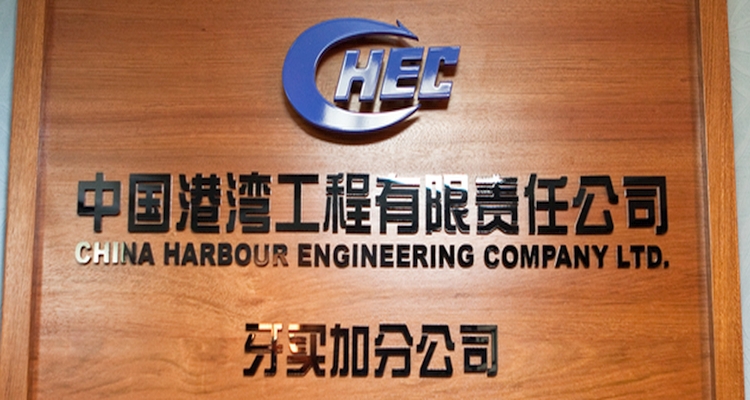China Harbour Engineering Company (CHEC) has financed the bank-appointed receivers of Baha Mar Resort, Deloitte & Touche, with $50 million as a preferred lender, moving to the top of the queue to be repaid, according the Tribune Business, a local Bahamian news outlet. The loan facility reportedly outranks even China’s Export Import bank (Exim) who have about $2.45 billion invested in the troubled project.
If the deal is structured as reported, with details coming anonymously from persons intimately involved but not allowed to speak publicly, the loan would push all other creditors, including about 120 Bahamian construction companies and 2,000 laid off workers further down the line to be “made whole” and could possibly jeopardize their chances to escape a ‘pennies on the dollar’ settlement.
CHEC is one of China’s largest state-owned enterprises operating outside the country. Projects include the Gwadar Deep Water Port in Pakistan, the longest bridge in southeast Asia at Penang, Malaysia and a new $41 million shipping port on North Abaco Island in the Bahamas.
No information has been made available as to why CHEC rather than Exim, another Chinese state-owned enterprise will be financing the maintenance and preservation of the resort assets.
The Tribune reports that CHEC has been described “one of the prospective investors” to take over the resort and some are seeing the financing deal as a way for the state-owned company to lock up potential control. The move is seen as extraordinary, as the entity placing a company into receivership, as Exim did with Baha Mar, is usually responsible to finance upkeep and maintain the value of a seized property.
Western investors are interested in completing and opening the resort but would likely plan to acquire the assets at a deep discount, whereas the state-owned companies working together could settle on full value for Exim. It is estimated that another $600 million will need to be pumped into Baha Mar just to open it.
A quick sale is in the interest of the government of the Bahamas to get the resort opened and contributing to employment and GDP. A full price sale is in the interest of Exim bank. One option that has not been discussed publicly is for the Bahamian government to nationalize the property. Nationalization is a process wherein a government takes control of a company or entire industry and may or may not compensate the owners for their losses.
Previous to being placed into receivership in October, Baha Mar had reportedly implied that a winding up process amounted to a seizure of private assets. In July Prime Minister Perry Christie said, “the nationalisation of private property is not only unconstitutional, it is completely repugnant to my personal political philosophy and ethos of governance and that of my government. I therefore reject, in the strongest possible terms, any suggestion to the contrary.”



